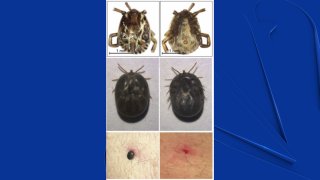
The state is issuing a warning about invasive ticks that pose a public health concern in Connecticut.
The state agricultural experiment station said there is an increased frequency of invasive ticks in the state because of people traveling internationally.
In the last few weeks, the tick testing lab has received at least four exotic tick species from residents returning to Connecticut after travel in Europe, Africa, South America and Central America.
The department said the ticks pose the potential for introducing new tick-borne pathogens and “alter the dynamics” of existing and emerging tick-borne diseases in the state as well as the region.
Get Connecticut local news, weather forecasts and entertainment stories to your inbox. Sign up for NBC Connecticut newsletters.
“These new introductions are in addition to several invasive ticks that the CAES has reported in the past few years, some of which have already established populations in the state, including the lone star tick, Gulf Coast tick, and Asian long-horned tick, placing new communities at risk for tick and tick-borne disease exposure,” Dr. Goudarz Molaei, a chief medical entomologist who directs the Connecticut agricultural experiment station tick and tick-borne disease surveillance program, said in a statement.
The state agricultural experiment station warned that not only travel but also the expansion of plant and animal trade are factors in the expansion of exotic ticks and the public and veterinary health concerns they bring.
Precautions
To prevent tick bites and reduce the risk of exposure to tick-borne diseases, residents are urged to:
- Avoid or limit activity in tick-infected areas including grassy, brushy or wooded areas.
- Treat clothing and gear with approved insecticides, or acaricides, that contain .5 percent permethrin
- Use EPA-registered repellents containing DEET or other products
- Check your clothing for ticks
- Check your body and shower after outdoor activity
- Tumble dry clothes in a dryer on high heat for 10 minutes to kill ticks on clothing after outdoor activity.
Sign up for our Breaking newsletter to get the most urgent news stories in your inbox.

